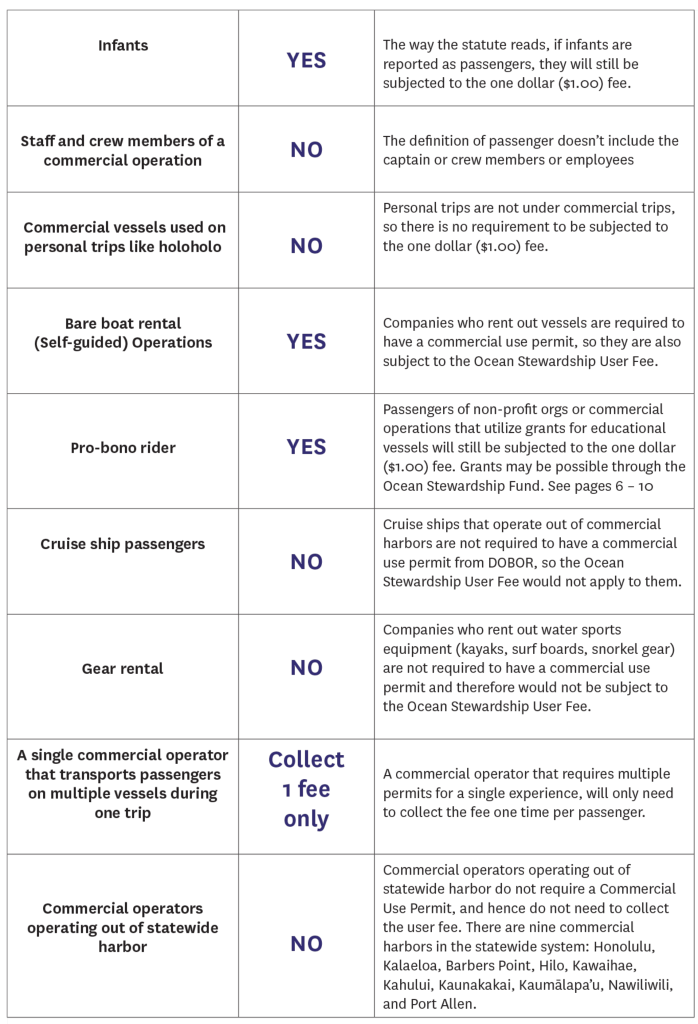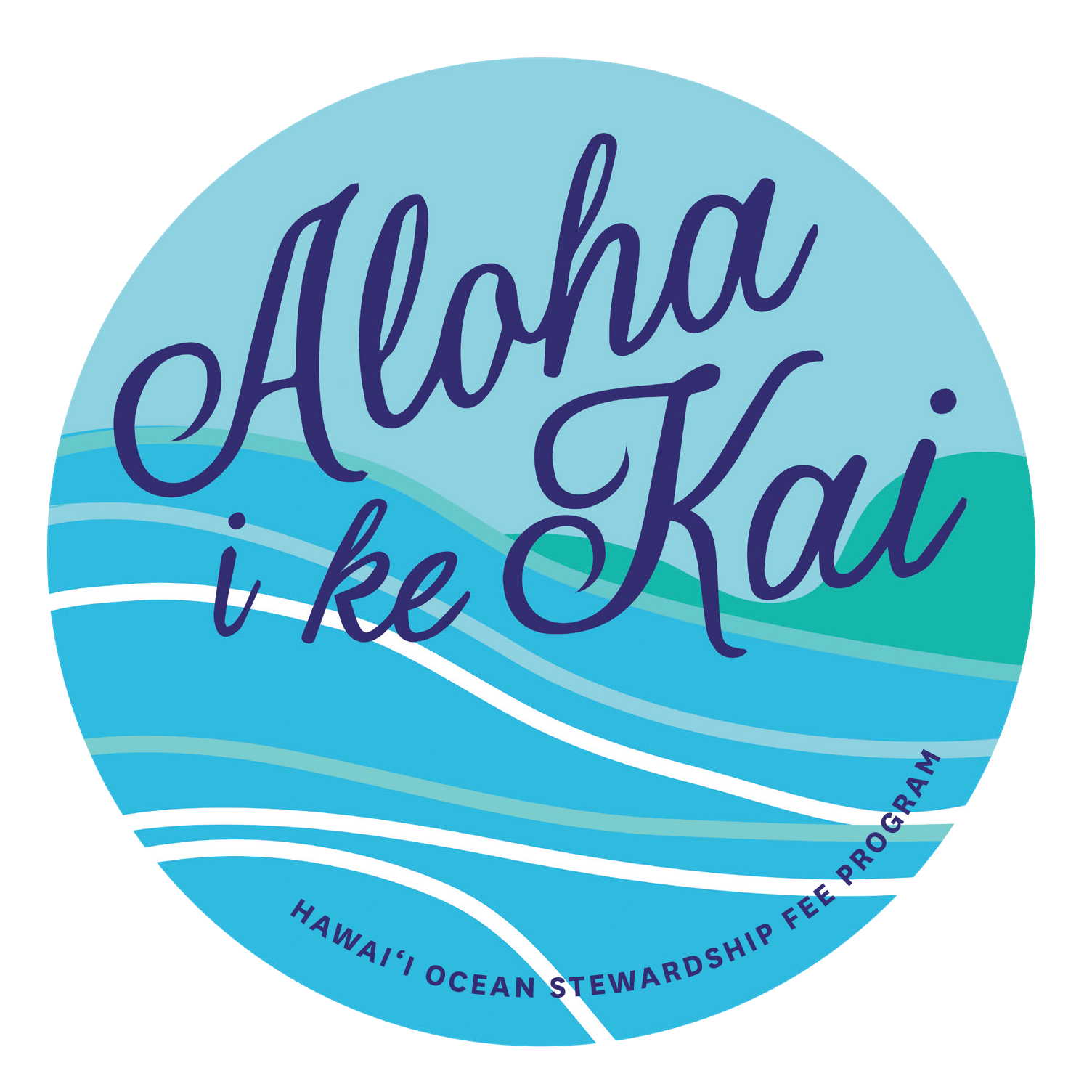For Hawai‘i’s Ocean Operators: Paying the Fee

Hawai‘i Ocean Operators Payment Portal (Launching 3/28/24)
For Hawai‘i’s Ocean Operators: Act 46 (HRS §187A-52)
Because of your support, including the leadership and engagement of the Ocean Tourism Coalition, Act 46 was signed into law in June 2021 establishing an Ocean Stewardship Special Fund, administered by the Department of Land and Natural Resources (DLNR), Division of Aquatic Resources (DAR).
All operators of commercial vessels, watercraft or water sports equipment or activities conducting commercial tours or instruction on State ocean waters are required to have a permit under section 13-256-3 of the Hawai‘i Administrative Rules (HAR), known as a Commercial Use Permit (CUP).
Beginning January 1, 2024, these operators will collect a one dollar ($1.00) Ocean Stewardship User Fee from each passenger they carry or customer they serve. The collected fees will be transferred to DAR on a monthly basis and deposited into the Ocean Stewardship Special Fund.
Who will pay the Fee:
Mahalo to our ocean businesses who will collect a one dollar ($1.00) Ocean Stewardship User Fee from each passenger they carry or customer they serve, beginning on January 1, 2024. The collected fees will be transferred to DAR on a monthly basis via the newly created online portal, a hub for communications and reporting and paying of the fee.

When paying the fee in the online portal NOTE THAT…
Direct bank transfers are free. Aloha i ke Kai covers the transaction fees. Paying with credit card incurs a nominal credit card transaction fee.
Please know that NO general excise taxes (GET) need be paid on the collected user fees as per the Department of Taxation and Attorney General’s offices’ direction. We hope this simplifies the collection and accounting of the user fee.
Payment is due on the last day of every month for activity from the previous month. (For example, payments for users in January are due the last day of February.)
DAR requests passenger manifests and records related to the Ocean Stewardship User Fee be maintained for at least two years, to accommodate random and periodic checks. This is part of how paying the user fee is monitored.
Questions about Exemptions:
Based on specific cases

Exemption Information and answers to your questions:
“If a trip is canceled and the experience did not occur, are commercial operators still responsible for collecting the fee?”
No. If an experience did not occur then the fee does not need to be collected.
“If a trip is refunded after an experience because of customer dissatisfaction or other reasons, are commercial operators still responsible for collecting the fee?”
Yes. Although the ticket is refunded to the customer, the stewardship fee should still be collected because
the experience occurred. Alternatively, you may elect to refund the fee, in which case your business would need to pay the fee on the customer’s behalf.
“Can Hawai‘i residents be exempt from paying the user fee?”
The ($1.00) fee is mandatory for residents who are customers.
“Is it possible for commercial operators who have been consistently compliant and follow the rules to receive credit for ensuring that the passengers/customers are educated and mindful about their environment during their experiences with the ocean?”
Ocean education and environmental awareness influences behavior that we can observe. However, there are currently no exceptions in the statute to credit compliant operators or operators carrying out valuable ocean education with its customers.
“Our company is devoted to the well being of the ocean that extends beyond the education of our customers. We already actively make green choices for our ‘āina to reduce sunscreen use by our customers, avoid the use of harmful cleaning fluids and gas, and we actively clean up the shoreline and retrieve trash. Can we be exempt from paying the user fee?”
We acknowledge your leadership and commitment to our shoreline health and customer awareness. It makes a difference. However, there are currently no exceptions in the statute to exempt responsibly minded operators.
